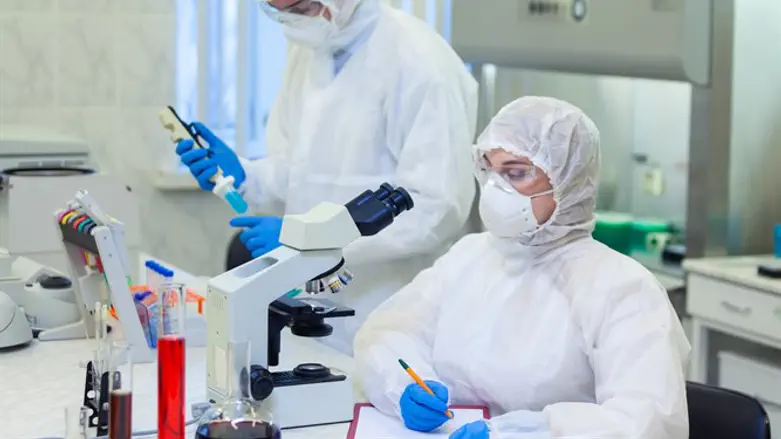
The number of coronavirus-related hospitalizations has stabilized, according to data released by the Israeli Health Ministry Tuesday morning, as the daily fatality rate falls to its lowest level in more than three weeks.
There are currently 32,052 active cases of the coronavirus, according to the Health Ministry, of which 31,292 are being treated at home or in coronavirus hotels, while 760 cases are being treated in hospitals.
That marks a slowing in the rise of the number of coronavirus hospitalizations, with 731 patients hospitalized for complications related to the virus two days ago.
The number of patients in hospitals soared in recent weeks from roughly 250 to well over 700.
The daily fatality rate has also declined significantly, after hitting a record high of 14 coronavirus-related deaths last Thursday.
On Sunday, 11 coronavirus-related fatalities were recorded, with the number dropping to two deaths on Monday, the lowest number in a 24-hour period since July 5th. Two more patients died on Tuesday, bringing the total coronavirus-related death toll to 480.
There are currently 321 patients listed in serious condition, up three from 321 on Monday, along with 164 patients in moderate condition, down from 179 on Monday.
Ninety-seven patients are currently on respirators.
A total of 1,998 new cases of the coronavirus were confirmed Monday, with 7.8% of the 25,483 tests returning positive, down from 9.2% of the tests a day earlier.
The number of patients who have recovered from the virus now exceeds the number of known active cases, with 32,117 recoveries compared to 32,052 active known cases. This comes after the Health Ministry eased its regulations on coronavirus patients, reducing the time needed without symptoms to be considered as having recovered.
Health Minister Yuli Edelstein (Likud) said that while the infection rate has not yet begun to decline, it has stabilized.
"We need to look at the percentage of confirmed infections out of all the tests, and that percentage is very troubling. It is around seven to eight percent, and the danger is real," Edelstein told Radio 103FM.
"There is no decline, it's stabilizing. That being said, I am optimistic, since we don't have geometric outbreaks."
